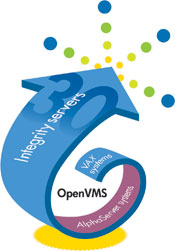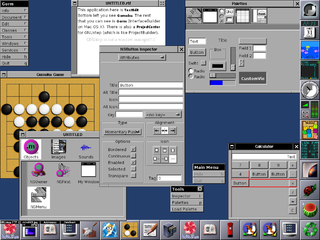
AIX is a series of proprietary Unix operating systems developed and sold by IBM for several of its computer platforms. Originally released for the IBM RT PC RISC workstation, AIX now supports or has supported a wide variety of hardware platforms, including the IBM RS/6000 series and later POWER and PowerPC-based systems, IBM System i, System/370 mainframes, PS/2 personal computers, and the Apple Network Server.

Cygwin is a POSIX-compatible environment that runs natively on Microsoft Windows. Its goal is to allow programs of Unix-like systems to be recompiled and run natively on Windows with minimal source code modifications by providing them with the same underlying POSIX API they would expect in those systems.

An operating system (OS) is system software that manages computer hardware and software resources and provides common services for computer programs.

Plan 9 from Bell Labs is a distributed operating system, originating in the Computing Sciences Research Center (CSRC) at Bell Labs in the mid-1980s, and building on UNIX concepts first developed there in the late 1960s. The final official release was in early 2015.

A Unix shell is a command-line interpreter or shell that provides a command line user interface for Unix-like operating systems. The shell is both an interactive command language and a scripting language, and is used by the operating system to control the execution of the system using shell scripts.

OpenVMS is a closed-source, proprietary computer operating system for use in general-purpose computing. It is the successor to the VMS Operating System, that was produced by Digital Equipment Corporation, and first released in 1977 for its series of VAX-11 minicomputers. The 11/780 was introduced at DEC's Oct. 25, 1977 annual shareholder's meeting. In the 1990s, it was used for the successor series of DEC Alpha systems. OpenVMS also runs on the HP Itanium-based families of computers. As of 2019, a port to the x86-64 architecture is underway.

The IBM System i is IBM's previous generation of midrange computer systems for IBM i users, and was subsequently replaced by the IBM Power Systems in April 2008.

GNUstep is a free software implementation of the Cocoa Objective-C frameworks, widget toolkit, and application development tools for Unix-like operating systems and Microsoft Windows. It is part of the GNU Project.
The Conversational Monitor System is a simple interactive single-user operating system. CMS was originally developed as part of IBM's CP/CMS operating system, which went into production use in 1967. CMS is part of IBM's VM family, which runs on IBM mainframe computers. VM was first announced in 1972, and is still in use today as z/VM.

The GNU Build System, also known as the Autotools, is a suite of programming tools designed to assist in making source code packages portable to many Unix-like systems.
ADABAS, a contraction of “adaptable database system", is a database package that was developed by Software AG to run on IBM mainframes. Launched in 1971 as a non-relational software package, earnings reports for the package's vendor were being followed by The New York Times in the early 1980s.
Distributed Processing Programming Executive is a discontinued operating system introduced by IBM, pre-installed on the IBM 8100 and later ported to the ES/9370.
LINC is a fourth-generation programming language, used mostly on Unisys computer systems.
SPF/SE 365 is a text editor and file manager sold by Command Technology Corporation. Similar to IBM's mainframe based ISPF and is able to edit ASCII and EBCDIC text file as a complete integrated applications development environment (IDE). Typically used for editing source code, invoking compilers, linkers, and debuggers, in a variety of programming languages, such as COBOL, FORTRAN, and C++.
Portability in high-level computer programming is the usability of the same software in different environments. The prerequirement for portability is the generalized abstraction between the application logic and system interfaces. When software with the same functionality is produced for several computing platforms, portability is the key issue for development cost reduction.
Endevor is a source code management and release management tool for mainframe computers running z/OS . It is part of a family of administration tools by CA Technologies, which is used to maintain software applications and track their versions.

A command-line interface or command language interpreter (CLI), also known as command-line user interface, console user interface and character user interface (CUI), is a means of interacting with a computer program where the user issues commands to the program in the form of successive lines of text. A program which handles the interface is called a command language interpreter or shell.
This page is based on this
Wikipedia article Text is available under the
CC BY-SA 4.0 license; additional terms may apply.
Images, videos and audio are available under their respective licenses.











